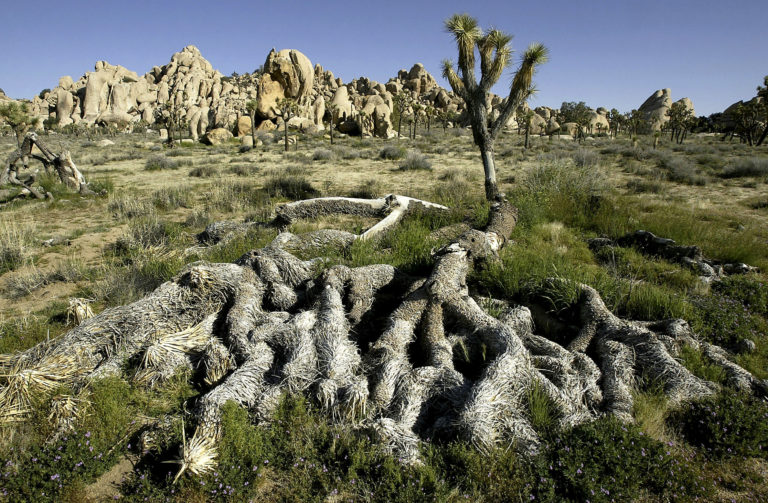
Two L.A.-area companies trying to complete huge projects in the Mojave Desert have won significant victories in recent weeks and now face make-or-break regulatory decisions that would allow them to move forward.
Eagle Crest Energy of Santa Monica, which wants to build a $2 billion energy storage project at an abandoned desert mine, received a major boost when the National Park Service declined to include the mine area in an expansion plan for adjacent Joshua Tree National Park. The next regulatory hurdle: a permit from the federal Bureau of Land Management for the right to pass a water pipeline and power transmission lines through federally owned land.
Downtown’s Cadiz Inc., which wants to spend hundreds of millions of dollars to build a massive water storage and transfer project on top of an aquifer it owns north of Joshua Tree, won a major legal victory last month when a state appellate court upheld environmental approvals for the project. Next up: a battle over whether the BLM can require the company to apply for a new permit for its proposed water pipeline alongside a railroad.
Both businesses are trying to avoid getting caught in a political tug of war over the bureau as a change in presidential administration nears. Eagle Crest is hoping to get BLM approval for its pipeline and transmission lines before the end of this year, while the Obama administration is still in office. And Cadiz is trying to overturn BLM’s decision last fall that requires it to get a new permit for its water pipeline, a process that would entail an environmental review. If successful in overturning the decision, it could avoid future BLM dealings.
New administration
But if an environmental review is ultimately required, a decision on the Cadiz project from the BLM would not come until a new presidential administration takes office in Washington. It’s also possible that the Eagle Crest’s approvals could slip into the next administration.
The platform of presumptive Democratic nominee Hillary Clinton gives conflicting insights. On one hand, she supports the infrastructure necessary for alternative energy. On the other hand, her platform also calls for ensuring protection for threatened and endangered species and habitats.
While Republican administrations have generally been more receptive to major water and energy infrastructure projects, the campaign platform of the party’s presumptive nominee, Donald Trump, is silent on these issues. Trump’s campaign press office did not respond to emails requesting more information.
Whichever candidate wins the White House in November, it could make a difference in the fate of one or both of these projects.
“The BLM has a lot of discretion, which is shaped by the policies of a given administration,” said Andrew Bell, partner with Marten Law, an environmental and energy law firm in San Francisco. Bell has represented major energy projects before the BLM. “The administration that is in charge can therefore make a big difference.”
Eagle Crest President Steve Lowe said last week that the BLM decision is the last major regulatory approval his project needs before the company can go out and negotiate energy supply contracts with utilities from around the state.
Its plan calls for the pumping of water into an upper reservoir using electricity from nearby solar and wind farms and generating up to 1,300 megawatts of electricity by letting water flow down to a lower reservoir. The company touts the pumped energy storage project as a way for utilities to meet state mandates on renewable energy.
Opponents of the project are concerned it might impact habitats for threatened species such as the desert tortoise. They initially sought to have the Park Service annex the mine as part of a planned expansion of Joshua Tree National Park, but park officials decided not to include the site in expansion plans released in April.
That was good news to Lowe, who would like to see a decision from the BLM by the end of the year.
Some environmental groups still oppose the project and are expected to file lawsuits to block it, either upon BLM approval or later.
Cadiz has argued that its pipeline, which would transport water from its aquifer to the Colorado River Aqueduct, would serve as a water supply for an adjacent railroad and so didn’t need a separate permit from the BLM. But the bureau’s retiring state director last fall issued a directive requiring the company to get a new permit.
Chief Executive Scott Slater said Cadiz has persuaded 23 members of the House of Representatives to sign a letter asking Congress to overturn the BLM decision.
